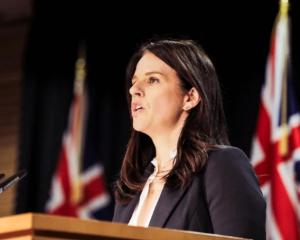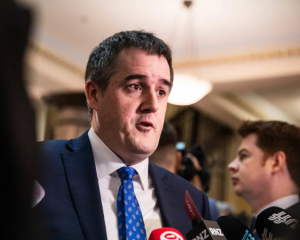Psychoactive substances, often known as legal weed or herbal highs, should be banned until they are proven to be safe by a new drug regulator, says the Law Commission.
In a review of the Misuse of Drugs Act tabled in Parliament today, the commission said it was recommending an end to the sale of new psychoactive substances until they had been assessed and approved by a new drug regulator.
Without that approval, it would be a crime to sell synthetic psychoactive substances such as "Kronic" and "Puff", which were currently unregulated and created an "unacceptable level of risk to the public", it said.
Law Commission president Justice Grant Hammond said the Misuse of Drugs Act which became law 35 years ago had not kept pace with the rapidly evolving market in new psychoactive substances.
Manufacturers and sellers cold evade the law by making the chemical structure of their products slightly different from drugs prohibited by the Act.
Sale restrictions could only be imposed retrospectively after authorities had evidence showing the risk level which was what happened with the stimulant BZP party pills in 2005.
The commission said under its proposed new regime, manufacturers and importers of a new substance would need approval from a new regulatory authority before marketing and selling a psychoactive substance.
They would also have to provide information about the safety of the substances.
If the regulator thought the risk was too high they could refer it for classification as a prohibited substance and it could be regulated similar to alcohol and tobacco.
That could include age restrictions, promoting and marketing bans in the media, including online.
The commission said it was also asked to look at how the Misuse of Drugs Act worked to reduce supply and demand for prohibited drugs.
It recommended replacing the Act with a new one administered by the Ministry of Health.
The proposed new Act would lead to better communications between the criminal, justice and health sectors, Justice Hammond said.
"We need to recognise that the abuse of drugs is both a health and a criminal public policy problem."
Heavy penalties were still needed for drug makers and sellers but there were "compelling arguments for adopting a more holistic approach to individual drug offending, particularly when it is driven by addiction.
"There is clear evidence that treatment can be cost effective. Some studies estimate that for every $1 spent on addiction treatment, there is a $4 to $7 reduction in the cost associated with drug-related crimes."
The report also recommended changes to the way discretionary decisions were made by police to charge someone with minor drug offences.
The deputy president of the commission, Dr Warren Young, said the commission wanted more education and treatment to be made available to people caught with small amounts of illegal drugs.
"We are recommending for personal possession and use -- that is for drugs that are possessed in small quantities and are not possessed for the purposes of supply or are not being supplied -- that we actually have a regime that ensures that we use the opportunity of criminal justice contacts to actually also provide education and treatment.
"That doesn't mean decriminalisation. We are recommending a sort of graduated response through cautions to education and treatment and then prosecution."












